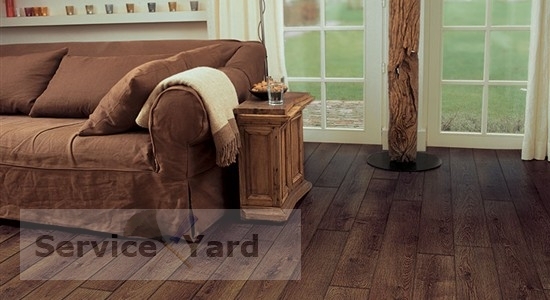
- Than wash the primer from the glass?
- How to wash off the primer?
- Useful advices
Primer is one of the types of building materials, the substance used for the strength and strong adhesion of the coating layers. If during the repair work, it was not possible to protect the windows from getting excess solution, you need to know what to wash the primer from the glass. Paint art only at first glance seems like a simple matter, and if you do it yourself, it's unlikely that you can apply the primer immediately. Dont be upset! Here you will find several safe ways to remove the solution.
to the contents ↑Than to wash the primer from the glass?
 Before working on removing dirt from the glass, use the necessary tools, solvents, to dilute the primer and clean the glass.
Before working on removing dirt from the glass, use the necessary tools, solvents, to dilute the primer and clean the glass.
Choose the most suitable material for cleaning glass. Depending on the type of primer, from its drying and hardening stage:
- water;
- dissolving substances, for example, white spirit;
- cleaning detergents;
- soda;
- acetic essence;
- blade;
- special scraper, shape resembles the letter "T", in which the blade is attached;
- abrasive sponge;
- sponge;
- rag.
How to wash off the primer?
With the right approach, the primer can be washed from any surface - linoleum, glass, laminate, etc. Carefully read the below methods, choose less labor for you.
Method 1
If the primer has not dried yet, it is advisable to wash it off immediately after it hits the glass surface, since the substance dries out literally in half an hour. To do this:
- Wet a rag in water.
- Erase contamination.
- Dry the glass dry with a dry cloth or crumpled paper.
Method 2
If the primer is dry:
- Wet the dried spots with the same primer.
- Allow moisture to soak.
- Rinse thoroughly with a damp sponge.
- Clean the remaining traces with a damp cloth.
- Wipe dry.
Method 3
To clean the primer that has seized well, do the following:
- Cover with a well-soaked cloth with dried stains.
- Wait for a while - the swollen primer will be better separated from the glass.
- Use the blade help and gently clean the ground.
- Wipe surface with a damp cloth.
Important! In order not to scratch the glass surface, operate the blade in one direction, do not force it strongly against it.
Method 4
Depending on the degree of drying of the soil, use a small-grain abrasive sponge in this way:
- Wet the sponge with water.
- Periodically soak the stains, gently remove them.
Important! Employment is labor-intensive, but the surface will certainly remain intact.
Method 5
 Use a special scraper to remove the primer. Handle the tool correctly. Follow the recommendations in the work with the device:
Use a special scraper to remove the primer. Handle the tool correctly. Follow the recommendations in the work with the device:
- Pre-moisten the stains with water.
- Hold the scraper at an angle of 30-45%.
- With light, progressive movements, clean off excess parts of the material.
- Remove traces of residues with a dishwashing detergent.
- Wipe the glass with a cloth soaked in water.
Important! As the scraper blades become contaminated, release it from accumulated dirt. Watch for the sharpness of the knife, since a faulty point can damage the glass surface.
Method 6
Use active cleaning agents such as Dopomat and Hodrupa - these products with a low level of foaming to clean the glasses. They are used for gentle cleaning of coatings. It is important to comply with safety measures when working with concentrates.
Technology for cleaning glass from primer:
- Dilute the concentrate in the proportion of 10 ml per 1 liter of cold water.
- Moisten a sponge in the solution.
- Apply to the surface of the glass. After a while rinse with cold water.
- Dry thoroughly.
Important! Work with gloves. Do not leave a concentrated liquid on the glass for a long time, there is a risk of damage.
Method 7
Depending on the type of primer, select the elimination agent. Essentially you will help when washing the primer from the glass with a special solvent for paints.
Alternatively use dissolving agents:
- white spirit;
- alcohol;
- acetone;
- petrol;
- turpentine;
- ethyl acetate;
- solvent 646.
Use the same procedure as in the previous method:
- Spread the substance onto the glass with a sponge.
- Allow to soak.
- Erase contamination.
- Wipe off any solvent residue with a damp cloth.
Method 8
Use the "Mister Muscle" window cleaner:
- Spray on the surface.
- Wipe with a sponge until stains are completely removed.
Important! If the surface still remains rough, use a stiff sponge.
Method 9
Conventional baking soda will become an indispensable assistant in the struggle to clean glass from the primer:
- Take a large amount of soda.
- Apply it to a damp sponge.
- Gently clean the dirt from the glass.
- To remove stubborn dirt, wipe the surface with a clean damp cloth.
Method 10
Use a nylon mesh to clean small primer spots on the glass:
- With a slight pressure, clean the dirt up and down.
- Wipe any remaining dust on the glass with a damp cloth.
Important! Be sure to work in the headgear and use a protective mask or respirator. Do not put your health at risk - a primer is still a chemical that can most adversely affect the condition of your skin, and dust that gets into the lungs will clog them and can cause allergies.
to the contents ↑Useful advices
So that you do not have a problem after repairing, rather than wash the primer from the glass, try to prevent contamination of the surface. To do this, read and follow the following recommendations during the whole repair of the house or apartment:
- The most reliable way not to smudge surfaces that are not designed for priming - do not allow the solution to get on them, as it is very durable and does not dry after drying.
- Before priming, cover the surfaces with cellophane, cover film. It is desirable to glue the joints with paint tape or tape.
Also protect yourself from allergies and other unpleasant health effects:
- Because the primer has a sharp odor, work with it in well-ventilated areas or outdoors.
- Remember the protection against toxic and concentrated materials.
- Observe safety regulations for the use of cutting tools.
To repair in your room was performed only qualitatively and with minimal power costs to remove contaminants from the primer, use our recommendations for preventing and solving unpleasant moments.



